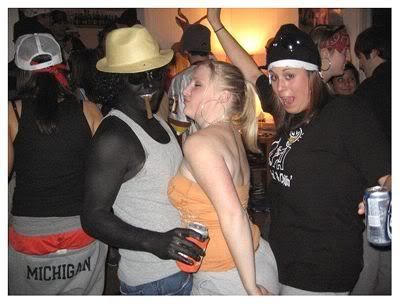2010 Black History Month Theme

The History of Black Economic Empowerment
By the Association for the Study of African Life and History
The need for economic development has been a central element of black life.
After centuries of unrequited toil as slaves, African Americans gained their freedom and found themselves in the struggle to make a living. The chains were gone, but racism was everywhere.
Black codes often prevented blacks from owning land in towns and cities, and in the countryside they were often denied the opportunity to purchase land. Organized labor shut their doors to their brethren, and even the white philanthropist who funded black schools denied them employment opportunities once educated. In the South, whites sought to insure that blacks would only be sharecroppers and day labors, and in the North whites sought to keep them as unskilled labor.
Pushing against the odds, African Americans became landowners, skilled workers, small businessmen and women, professionals, and ministers. In the Jim Crow economy, they started insurance companies, vocational schools, teachers colleges, cosmetic firms, banks, newspapers, and hospitals. To fight exclusion from the economy, they started their own unions and professional associations. In an age in which individuals proved unable to counter industrialization alone, they preached racial or collective uplift rather than individual self-reliance. The late-nineteenth and early twentieth centuries witnessed an unprecedented degree of racial solidarity and organization.
In 1910, a group of dedicated reformers, black and white, gathered to create an organization to address the needs of African Americans as they migrated to the cities of the United States. The organization that they created a century ago became what we all know as the National Urban League.
For a century, they have struggled to open the doors of opportunity for successive generations, engaging the challenges of each age.
ASALH celebrates the centennial of the National Urban League by exploring racial uplift and black economic development in the twentieth century.


 The vestiges of institutionalized racism in higher education continue. And today, they aren't any more apparent than at the University of California at San Diego.
The vestiges of institutionalized racism in higher education continue. And today, they aren't any more apparent than at the University of California at San Diego.
 Female invitees were asked to be "ghetto chicks," meaning wearing gold teeth and cheap clothes, starting fights and having "short, nappy hair." They were also encouraged to use a "limited vocabulary."
Female invitees were asked to be "ghetto chicks," meaning wearing gold teeth and cheap clothes, starting fights and having "short, nappy hair." They were also encouraged to use a "limited vocabulary." Then a female student left a noose hanging in the campus library. She was suspended after confessing, saying she "didn't think leaving a noose was an issue," according to a campus official.
Then a female student left a noose hanging in the campus library. She was suspended after confessing, saying she "didn't think leaving a noose was an issue," according to a campus official.


